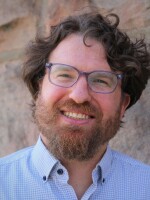Jurors in the Pittsburgh synagogue shooting trial began deliberations immediately after prosecutors and defense lawyers delivered their closing arguments Thursday about whether Robert Bowers should be eligible for the death penalty.
The key issue during this second phase of Bowers’ trial was whether he formed an intent to kill 11 Jewish worshipers in 2018 at the Tree of Life synagogue in Squirrel Hill.
A key part of the argument for each side is that Bowers doesn’t appear to have shown remorse and instead regrets that he didn’t kill more people. Prosecutors argue that this shows how clear his intent to kill continues to be. Bowers’ lawyers say that this proves he suffers from a mental illness — schizophrenia — of which a defining feature is that beliefs are resistant to change.
“Even when in custody charged with capital murder, he can't restrain himself from vocalizing these delusions he has — the country is being invaded, that he's a soldier at war, that he has a moral imperative to kill Jewish people,” said defense lawyer Michael Burt in his closing statement. “That all kinds of crazy, delusional content is still existing many years after the event speaks to the severity of this illness."
Assistant U.S. Attorney Soo Song disagreed with that premise.
“Even if he does have schizophrenia, it does not and would not answer the question whether this defendant has the capacity to kill,” Song said. “People with schizophrenia and delusions can and do form the intent to kill.”
During Song’s opening statement, she emphasized that the evidence of Bowers’ intent was overwhelming: months of planning, scouting alternative sites to attack, posting anti-semitic comments on the internet, practice-firing his weapons and selecting a time and place to inflict maximum damage.
“He fired his rifle more than 70 times in the Tree of Life synagogue,” Song said. “Each and every time, he was proving his intent to kill. Each and every time he pulled his trigger on his rifle.”
During his opening statement, Burt walked through the testimony of defense scientific experts, saying they all poinedt to a similar conclusion: That Bowers’ brain showed evidence of significant damage and that his thought process showed elements of schizophrenia.
As a result, once Bowers got the delusional belief in his head from the internet that Jewish people were trying to replace white people and that he needed to act to stop them, he had lost the ability to change course, Burt said.
Burt read one of the jury instructions, which states that jurors may not rely on information from the internet to draw their conclusions.
“That is a common-sense proposition that we all understand in life and experience looking at the internet,” Burt said. “The issue in this case is, what happens when your brain is broken?”
U.S. Attorney Eric Olshan pointed to a number of inconsistencies in the testimony of the defense witnesses who concluded Bowers has schizophrenia. One expert pointed to Bowers’ belief about ink getting into his skin, but another expert disagreed and used Bowers’ anti-semitic beliefs as the basis for his schizophrenia diagnoses. One expert testified that the source of the problem was found in the right side of Bowers’ brain, while another testified that it was in the left side.
“None of it lines up,” Olshan said. “And sometimes in life, the simplest explanation is the correct one. None of this lines up because the defendant doesn't have epilepsy and he does not have schizophrenia.”
Burt spent more than an hour going back over the evidence of expert witnesses and trying to show how they all, in some way, suggested or implied a diagnosis of schizophrenia.
“Government counsel told you that evidence presented by defense is so contradictory, so unworthy of belief, so lacking in coherence [that] you shouldn't spend any time considering it,” Burt said. “If that's so, why would they spend just short of $400,000 trying to rebut it?”
Prosecutors criticized the defense experts for not asking Bowers about his white supremacist beliefs and for not researching them thoroughly to understand that Bowers’ beliefs were normal within that subculture.
Instead, prosecutors said, the defense experts wrongly called these beliefs delusional when, in fact, they are normal and widespread within the white supremacist subculture.
“It's more evidence that he doesn't suffer from delusions,” Olshan argued in rebuttal. “He just believes things that are repugnant.”
Burt continued to argue that Bowers’ specific beliefs were abnormal.
“He isn't saying he just hates Jews. [Otherwise] he would be out randomly killing Jewish people,” Burt said, alluding to Bowers’ focus on a more specific conspiracy theory about Jews promoting immigration to replace white people.
“A part of his delusional belief system is that he has to take action to save humanity,” Burt added. “If that's part of political discourse, then we're in serious trouble, folks.”
If the jury agrees with prosecutors, the trial will enter a final phase in which jurors will hear more evidence before deciding if Bowers deserves the death penalty. If the jury disagrees or can’t come to a unanimous decision on a death sentence, Bowers will be sentenced to life in prison.
The jury was released after less than an hour of deliberation. Deliberations will resume Thursday.





